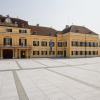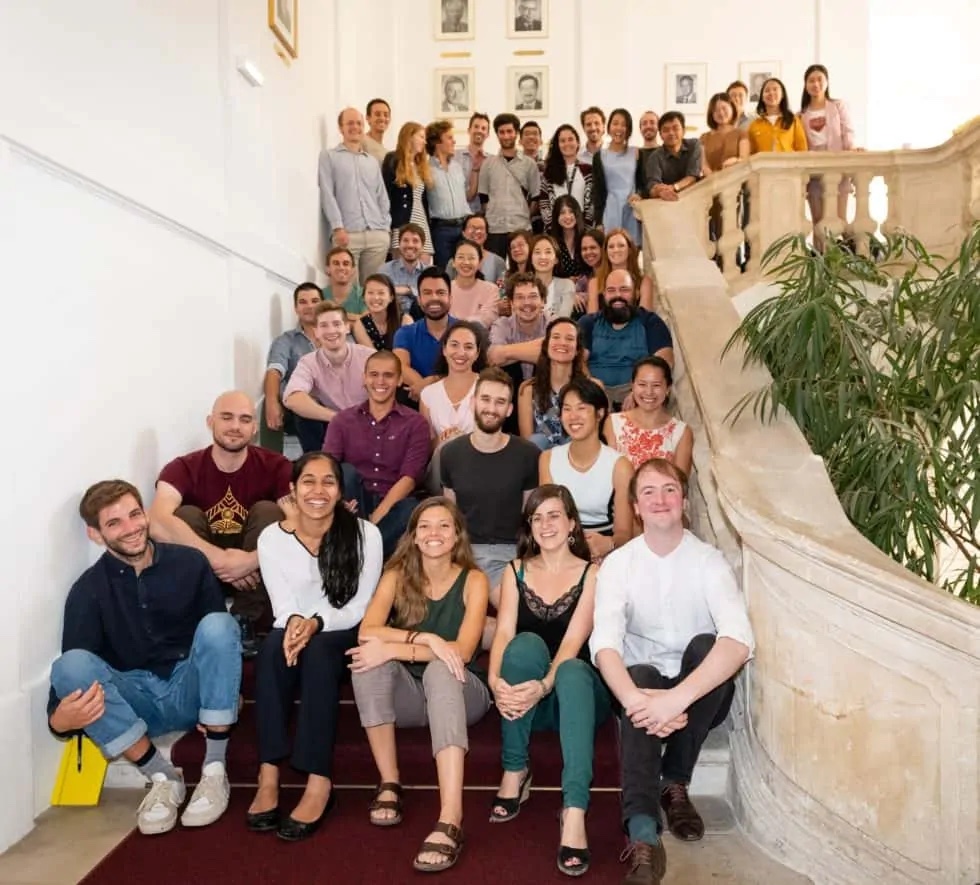
Greg Davies-Jones delves into the topic of Capacity Development at IIASA and what the institute hopes to achieve in the coming years.
Capacity development is an essential process in any ambitious organization. This is no different at IIASA. As an institute widely recognized for its global, non-partisan, policy-orientated research, it strives to stay ahead of the curve. IIASA prides itself on the diversity of its staff, while also remaining mindful of a variety of other, equally critical aspects such as organizational capability, impact, and influence. Given the magnitude of today’s global challenges, allied with the diversity of modern research, systems thinking has never had greater value, nor greater potential. Now more than ever, IIASA is needed.
Leading the charge is Fabian Wagner, Dean of Capacity Development and Academic Training (CDAT) – a role that he fulfills in tandem with his responsibilities as a senior researcher in the IIASA Air Quality and Greenhouse Gases Program.
“A priority for IIASA is nurturing the next generation of system analysts. This does not mean we are aiming for a particular number over a given period but rather it’s about making sure our research has maximum impact and being more strategic with how we deliver external expertise – streamlining CDAT helps that,” explains Wagner. “It’s similar to how we look at effectively using aid money – you don’t give to provide superficial solutions, you facilitate the actions needed to help people permanently solve problems. At IIASA this means if your country needs three people to carry out some technical assessment and our three people are busy, we can offer our tools and expertise to help you train three of your own people to carry out the analysis.”
An initiative at the forefront of broadening participation in systems analysis is the institute’s flagship Young Scientists Summer Program (YSSP). This program, alongside the numerous IIASA postdoc opportunities, is a major building block for capacity development at the institute.
Every summer, a diverse mix of early-career scientists assemble at an 18th-century castle in Laxenburg, just outside Vienna, Austria – the institute’s headquarters – to spend three months working on a range of topics derived from and complementary to ongoing research being carried out as part of the IIASA research agenda. In parallel with the research endeavors, a program of activities and events ensure that YSSP participants spend the summer months being not solely scientifically stimulated, but professionally and culturally as well: Extending their professional networks; discovering Vienna’s cultural treasure-trove, and making a heap of new friends along the way. This interaction between IIASA and YSSP participants forms the beginning of a valued relationship that has the potential to facilitate further research, collaboration, and indeed positive action in the years to come.
 © Christoph Liebentritt | IIASA
© Christoph Liebentritt | IIASA
IIASA aims to expand its portfolio for early-career professionals beyond the YSSP and post-doc initiatives. In the coming years, the institute hopes to add a range of internships and fellowships to complement the current early-career opportunities: ” To really make bigger changes in the world, we need to broaden and deepen the understanding of systems science and also expand our networks,” affirms Wagner.
Wagner says that capacity development at the institute will lead to greater external value. An illustration of how this would serve as a catalyst for valuable, trans-national impact is the scope for increased interaction with the UN Sustainable Development Goals (SDGs).
“Globally, there is a raft of organizations offering foundational courses on the SDGs and how to achieve them. IIASA, likewise, contributes to this endeavor, not only to offer a basic understanding of the SDGs but specifically to delve into what the synergies and tradeoffs may be. Enhancing capability and developing strategic outlets to provide such outreach programs at the institute will boost external value and drive international impact,” Wagner adds.
Coupled with this fresh outlook on capacity development, IIASA recently finalized its plans for a new strategy that will ensure it continues to uphold its directive to provide independent, science-based insights to underscore systems capable of addressing global challenges over the next decade. This roadmap for the future of systems analysis at IIASA will run in tandem with capacity development. Driving both forward concurrently will, of course, require some give and take.
“This will likely result in a broader mandate at IIASA, which means more people engaging in capacity development activities and thus potentially proportionately fewer hours spent on research but, crucially, it will ensure our research has real impact. Notwithstanding, this does not necessarily mean that it is always a zero-sum game but rather a chance to create new opportunities elsewhere. Our people have different skills and are driven to engage in different activities. It is therefore about harnessing those skills and that drive and employing those attributes in the most suitable context. Ultimately, it is about creating more opportunities – that is how I see my role – as a new opportunity to create new opportunities,” concludes Wagner.
Applications for the 2021 YSSP are now open, apply here.
Note: This article gives the views of the author, and not the position of the Nexus blog, nor of the International Institute for Applied Systems Analysis.